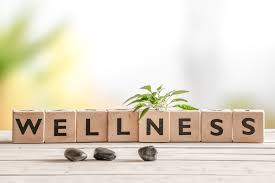When is the right time to think critically?
- Dannielle K Pearson

- Jul 16, 2024
- 4 min read
We all have people, situations or places that influence the people we become. They act as the bedrock of our values and the lens for which we interpret the world. Much of my younger years were influenced by my grandparents. I was fortunate to have had relationships with all of them. All remarkable in their own right, each instilled me with wisdom I’ve relied upon over the course of my life. I was anointed my strategic head and propensity for critical thinking, from my father’s dad Robert. Robert, my grandfather retired as a Captain in the Navy, just one rank below Admiral. My formative years were spent accompanying him on tours of Naval bases, submarines, aircraft carriers, and military aircraft. I was barely five when I first stood next to a Blue Angel in a hangar, and just six when I sat in an Air Force F15 flight simulator. To this day, I find air shows underwhelming. Not because they are but because of the VIP access I was afforded at a young age. Fighter jets were common fixtures in the sky.
My grandfather was a Surface Warfare Officer (SWO), he commanded Naval fleets in and out of peaceful and hostile waters. SWOs have a significant amount of responsibility. They are responsible for mission achievement, the ship and its systems and most importantly the lives of all crew members. A standard aircraft carrier holds 6,000+ crew members. If the oversight of a few thousand people wasn’t enough, his geographic domain was navigating in and out of the Bermuda Triangle. If unfamiliar, that’s where Amelia Earhart was last seen, and seemingly vanished. Amongst countless others and their aircraft. He spent 20+ years navigating these waters, without incident. While most would find this astounding, he found it routine. My grandfather was a seasoned strategist, and critical thinker. Skills he developed overtime, until they were second nature.
It was important to him that I knew how to think on my feet. I can still hear him say, “Plan A is likely to fail, you need plan B, C, D and at least E.” He would commonly run me through “what would you do” drills a series of questions on “what would I do,” in a varying life circumstances. What would I do if the car got a flat tyre? What would I do if I got locked out of the house? What would I do if I lost my way? I had to think through how would I remedy the situation, what options were available to me, what were the positives and negatives of each option? My grandfather was teaching me how to critically think, so it would become second nature. Just as he did while navigating the waters of the Bermuda Triangle. I was the only nine-year-old in fourth grade that could outpace the teachers in scenario planning. Something he took great pride in, and if I am being honest, so did I.
When is the right time to think critically?
The answer to this question is simple. Whenever it best serves you as an individual. It’s unfortunate that critical thinking has been reserved for the academic elite, and highly skilled professions such as Doctors, Lawyers and University Professors. This has resulted in its general distancing from our everyday lives. My grandfather’s “what would you do” exercises were everyday life scenarios, not textbook equations. They didn’t require a framework, or an advanced education to navigate. They required presence, clear mindedness, and a knowing that there is no perfect plan, choice or decision. There is only the best choice for that moment. As the moment evolves, so does your insight, and the ability to make a new decision.
Someone with a metabolic disease like diabetes, food choices are a matter of life and death. What’s for breakfast, is an existential choice. One that will require thought and even scenario planning. For an individual without this ailment the decision may require little to no thought. A parent is presented with the need to think critically on a perennial basis. Questions like what’s the best approach to aid in my child's short- and long-term development? When do I draw boundaries and play then enforcer, versus letting things go? Critical thinking is the single most important ingredient in managing mental health. Whether you are seeking to work through a recent break up, make better choices, or tackling more severe ailments, like depression, anxiety and even PTSD, our ability to heal requires a clear mind, and understanding of your options. Critical thinking is seminal to how we perform at work. Whether you are an artist creating a painting, a Senator drafting policies, a software engineer constructing a demo, or a customer service representative handling an unhappy customer, all require critical thinking skills.

There is no prescribed time, topic or scenario that is reserved for critical thinking. We think critically when it best serves us. Not all of these moments are grand, in fact most are small. Like the Butterfly effect, small decisions lead to much larger ones down the pike. If we assume every moment counts, then every decision matters. How we make these decisions and arrive at our conclusions is important. As I learned at a young age, sometimes Plan A fails, it’s important to know what you would do.




Comments